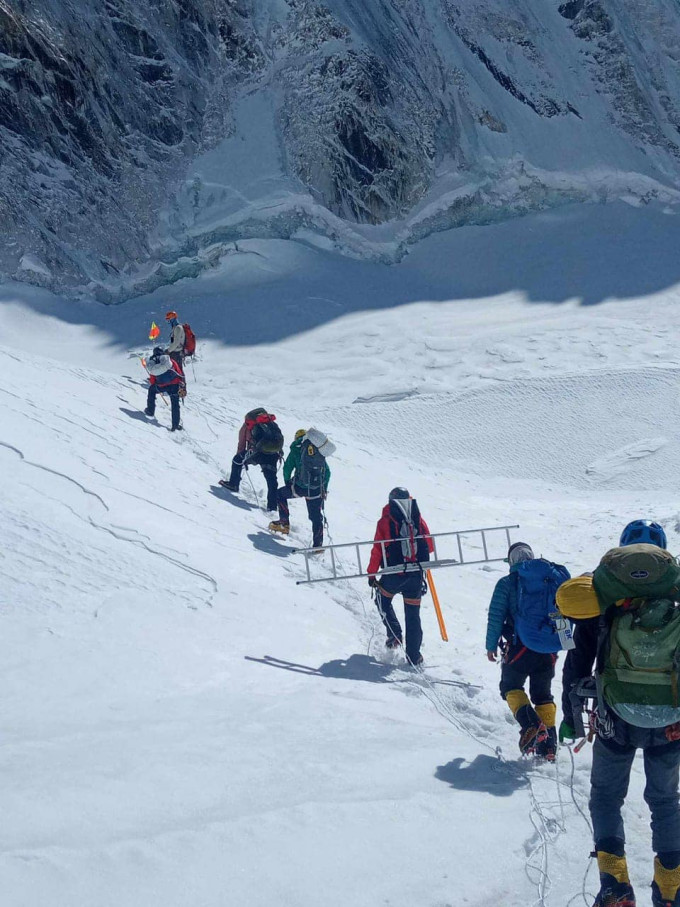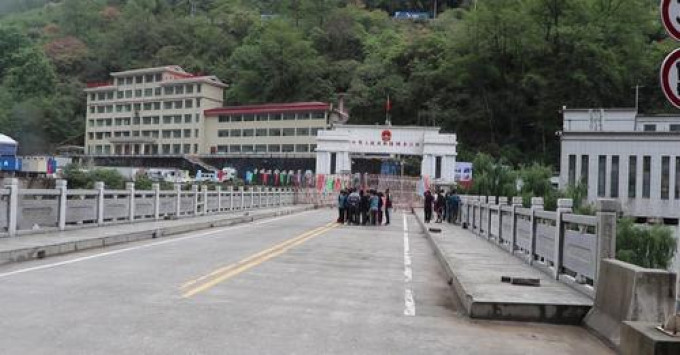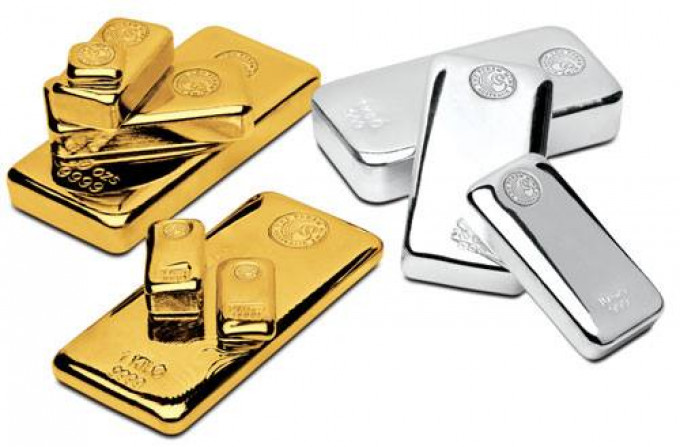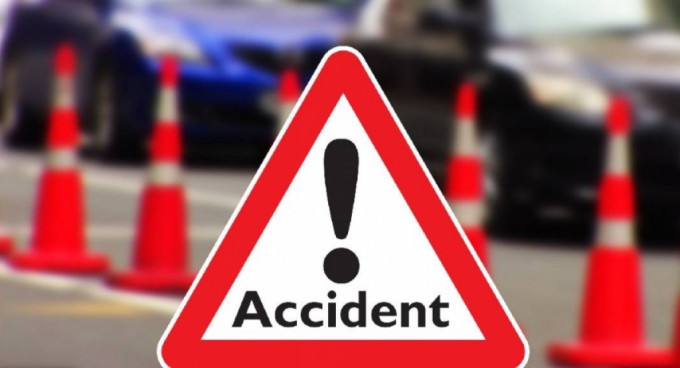A judge on Friday ordered protesters at the Ambassador Bridge over the US-Canadian border to end the 5-day-old blockade that has disrupted the flow of goods between the two countries and forced the auto industry on both sides to roll back production.
It was not immediately clear when or if law enforcement officers would be sent in to remove the demonstrators, who parked their pickups and other vehicles in a bumper-to-bumper protest against the country’s COVID-19 restrictions and an outpouring of fury toward Prime Minister Justin Trudeau and his Liberal government.
Chief Justice Geoffrey Morawetz of the Ontario Superior Court said during a virtual hearing that the order would be effective at 7 p.m. to give protesters time to leave.
Windsor police immediately warned that anyone blocking the streets could be subject to arrest and their vehicles may be seized.
The news was met with defiance by protesters.
At the Ambassador Bridge, an unidentified person grabbed a microphone and addressed them, asking if they wanted to stay or leave when the deadline rolled around. By a show of applause, it was agreed they would stay. “OK,”’ the man said. “Let’s stand tall.” The protesters responded by singing the Canadian national anthem.
The crowd later grew in size and intensity, with flag-waving and frequent chants of “Freedom!” More patrol cars moved in around the site, and police handed out leaflets warning that a state of emergency would come into effect at midnight.
Since Monday, drivers mostly in pickup trucks have bottled up the bridge connecting Windsor to Detroit. Hundreds more truckers have paralyzed downtown Ottawa over the past two weeks; it was a party atmosphere there Friday night, when they even set up a concert stage.
And protesters have also blocked two other border crossings, in Alberta and Manitoba.
The judge’s decision came after a 4 1/2-hour court hearing at which the city of Windsor and lawyers for auto parts makers argued that the blockade was causing undue economic harm for the city and region.
Supporters of the protesters, some of them truckers, argued that an order to disband would disrupt their right to peacefully protest vaccine mandates that hinder their ability to earn a living.
The ruling came in a day of fast-moving developments as federal, provincial and local officials worked simultaneously on different fronts to try to break the standoff with the so-called Freedom Convoy, whose members have been cheered on by the right in the U.S., including Fox News personalities, Donald Trump and Texas Sen. Ted Cruz.
“This unlawful activity has to end and it will end,” Trudeau warned just hours earlier.
“We heard you. It’s time to go home now,” the prime minister said, cautioning that “everything is on the table” for ending the blockades.
Also Friday, Ontario Premier Doug Ford declared a state of emergency and threatened heavy penalties against those who interfere with the free flow of goods and people.
Ford said he would convene the provincial cabinet on Saturday to urgently enact measures that make it “crystal clear” it is illegal to block critical infrastructure. Violators will face up to a year in prison and a maximum fine of $100,000, he said.
“There will be consequences for these actions, and they will be severe,” Ford said. “This is a pivotal, pivotal moment for our nation.”
The measures will also provide additional authority “to consider taking away the personal and commercial licenses of anyone who doesn’t comply,” according to the premier’s office.
Trudeau called Ontario’s decision “responsible and necessary” and said he spoke with U.S. President Joe Biden about it.
“We discussed the American and indeed global influences on the protest,” Trudeau said. “We talked about the U.S.-based flooding of the 911 phone lines in Ottawa, the presence of U.S. citizens in the blockade and the impact of foreign money to fund this illegal activity.”
Trudeau said that on some fundraising platforms, as much as 50% of the donations are coming from the U.S.
He said he and Biden agreed that “for the security of people and the economy, these blockades can’t continue.”
Trudeau said he understands the protesters are frustrated by the pandemic, but “these blockades are hurting everyday families, auto assembly workers, farmers, truckers, blue-collar Canadians.”
The protests have caused shortages of auto parts that have forced General Motors, Ford, Toyota and Honda to close plants or cancel shifts.
“We heard you. It’s time to go home now,” the prime minister said, cautioning that “everything is on the table” for ending the blockades.
Also Friday, Ontario Premier Doug Ford declared a state of emergency and threatened heavy penalties against those who interfere with the free flow of goods and people.
Ford said he would convene the provincial cabinet on Saturday to urgently enact measures that make it “crystal clear” it is illegal to block critical infrastructure. Violators will face up to a year in prison and a maximum fine of $100,000, he said.
“There will be consequences for these actions, and they will be severe,” Ford said. “This is a pivotal, pivotal moment for our nation.”
The measures will also provide additional authority “to consider taking away the personal and commercial licenses of anyone who doesn’t comply,” according to the premier’s office.
Trudeau called Ontario’s decision “responsible and necessary” and said he spoke with U.S. President Joe Biden about it.
“We discussed the American and indeed global influences on the protest,” Trudeau said. “We talked about the U.S.-based flooding of the 911 phone lines in Ottawa, the presence of U.S. citizens in the blockade and the impact of foreign money to fund this illegal activity.”
Trudeau said that on some fundraising platforms, as much as 50% of the donations are coming from the U.S.
He said he and Biden agreed that “for the security of people and the economy, these blockades can’t continue.”
Trudeau said he understands the protesters are frustrated by the pandemic, but “these blockades are hurting everyday families, auto assembly workers, farmers, truckers, blue-collar Canadians.”
The protests have caused shortages of auto parts that have forced General Motors, Ford, Toyota and Honda to close plants or cancel shifts.
READ ALSO:









